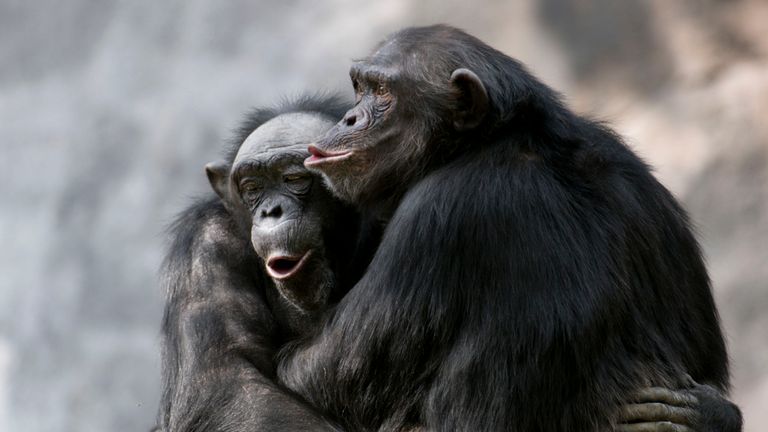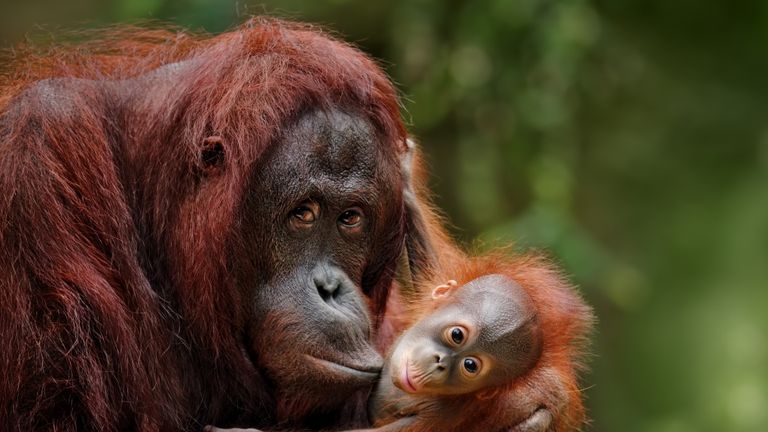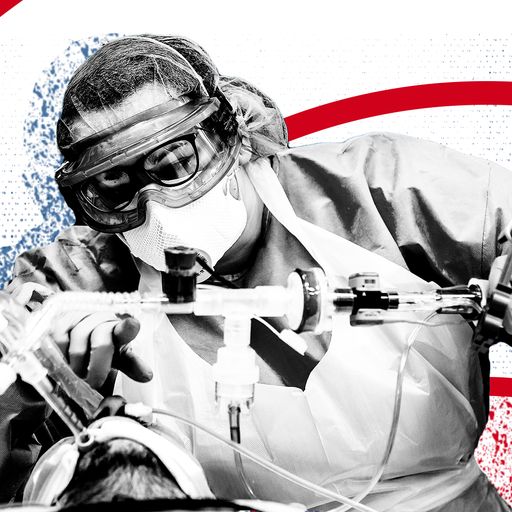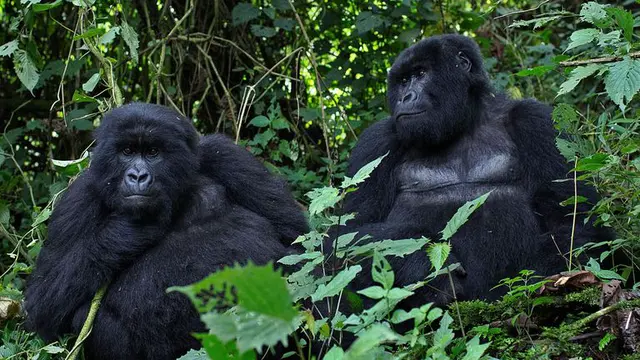Gorillas, chimpanzees and other great apes are at serious risk of catching coronavirus from humans, a leading conservationist has warned.
Following news that a four-year-old tiger at the
Bronx Zoo
in New York had tested positive for COVID-19
, the disease caused by coronavirus
, Ian Redmond harbours concerns about other endangered species.
He said all species of great ape - gorillas, bonobos, chimpanzees and orangutans - could be especially at risk as they share between 97% and 99% of their DNA with humans.

Image:Chimpanzees also fall into the great ape family
"There is abundant scientific evidence that great apes are susceptible to infection with human respiratory pathogens," said the celebrated tropical field biologist.
"Therefore the great apes are highly likely to be susceptible to [the COVID-19] infection, and possibly with a higher mortality rate than among humans."
While many infectious diseases from Ebola to HIV are known to have been transmitted to humans from animals, research has long examined how such illnesses might jump the other way.
Back in 2012, an Emory University study found that 58% of chimpanzees at sanctuaries in Uganda and Zambia were carrying drug-resistant strains of staph, which can cause painful lumps, sores and blisters on human skin.
Researchers said the infections were likely acquired from vets who worked with the chimpanzees.
In the final report, the university's primate disease ecologist Thomas Gillespie concluded that novel pathogens from humans were "one of the biggest threats" great apes faced.

Image:Orangutans could potentially catch the disease from humans
Mr Redmond, who has become renowned for his work with gorillas during a 35-year career in conservation, said introducing new human diseases to great apes has the potential to be "catastrophic".
"COVID-19 is a new virus so nothing is known about the mortality rate in non-human apes," he said.
"We do know that some diseases cause a higher mortality in closely related species, and that risks are greater for gorillas and chimpanzees and bonobos because they love in social groups."

Coronavirus: Infection numbers in real time
As chairman of the Ape Alliance, a worldwide coalition of more than 100 conservation organisations, Mr Redmond is suggesting that great ape tourism should be suspended and field research reduced.
Many ape tourism and research sites have already taken steps to reduce the risk of COVID-19 infection, with visitor opportunities across the likes of Indonesia and Uganda having been halted.
Those working with apes are also adhering to an increase in the minimum distance they need to keep.
But so far, there have not been any suspected or confirmed cases of COVID-19 in apes.
 简体中文
简体中文

